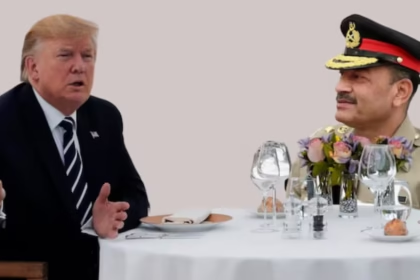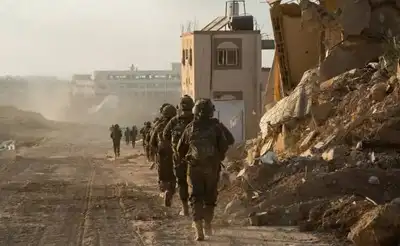Iran’s Bold Rejection of Nuclear Proposal Amid 5 Intense US Threats — Global Tensions Surge Dramatically
Iran Firmly Rejects US Nuclear Proposal Amid Escalating Global Tensions
Iran has categorically rejected a recent nuclear proposal put forth by the United States, asserting that the offer fails to safeguard Tehran’s national interests or meaningfully ease Washington’s rigid stance on uranium enrichment. The firm refusal underscores the growing diplomatic impasse between the two countries, with the potential for intensified geopolitical tensions as negotiations continue.
Supreme Leader Ayatollah Khamenei’s Defiant Stance
On Wednesday, Iran’s Supreme Leader Ayatollah Ali Khamenei reiterated that the country will not abandon its uranium enrichment program — a central pillar of its nuclear policy. Speaking during a televised address commemorating the death anniversary of the Islamic Republic’s founder, Ayatollah Ruhollah Khomeini, Khamenei delivered a resolute message: uranium enrichment is vital to Iran’s nuclear program and national sovereignty.
“The enemies have focused on our uranium enrichment, but it is the key to our nuclear program,” Khamenei said. He emphasized that Iran’s independence requires self-reliance and rejecting external pressure, particularly from the United States. “Independence means not waiting for the green light from America or its allies,” he stated emphatically.
Khamenei described the US proposal as fundamentally incompatible with Iran’s ideological framework, rooted in the 1979 Islamic Revolution. “The US nuclear deal is 100 percent against our nation’s beliefs and principles,” he said, reinforcing Tehran’s rejection of any agreement that undermines its nuclear ambitions.
The US Proposal: An Overview
The nuclear proposal from the United States was officially shared with Iran last Saturday, as part of ongoing efforts to revive the 2015 Joint Comprehensive Plan of Action (JCPOA) or a similar agreement. This initiative follows months of diplomatic engagement aimed at resolving concerns over Iran’s nuclear program, which Western powers allege has military dimensions despite Tehran’s insistence on its peaceful nature.
At a White House briefing on Tuesday, press secretary Karoline Leavitt stated, “US President Donald Trump’s special envoy Steve Witkoff has sent a detailed and acceptable proposal to the Iranian regime. It is in Iran’s best interest to accept it. Failure to do so will result in grave consequences, as reiterated by the president.”
Leavitt further emphasized the US’s unwavering position against Iran acquiring a nuclear weapon, quoting President Trump: “Under our potential agreement — we will not allow any enrichment of uranium!”
Despite these warnings, Tehran has rejected the offer, claiming it does not address their core demands nor the issue of uranium enrichment, which remains the crux of contention.
Iran’s Official Response
Iran’s Foreign Minister Abbas Araghchi confirmed that Iran has received the US proposal but asserted that Tehran will respond “in line with the principles, national interests, and rights of the Iranian people.” This cautious stance indicates Iran’s unwillingness to concede on uranium enrichment or other sovereignty issues under current US terms.
This diplomatic stalemate arrives amid preparations for a sixth round of negotiations between the two countries regarding Iran’s nuclear activities. International media, including CNN, have speculated about a potential interim deal that could be reached during these talks, but no concrete progress has yet been announced.

Core Issue: Uranium Enrichment
At the heart of the dispute is the US insistence that Iran completely halt uranium enrichment activities, a condition Iran vehemently opposes. Uranium enrichment is essential for Iran’s civilian nuclear energy ambitions and, according to Tehran, a sovereign right under the Non-Proliferation Treaty (NPT).
However, concerns about possible military dimensions to Iran’s program remain high among Western nations. A UN atomic agency report disclosed that Iran has conducted secret nuclear activities involving undeclared material at three separate sites, exacerbating mistrust.
Tehran maintains that its nuclear program is exclusively peaceful, rejecting allegations that it seeks nuclear weapons capability.
Economic and Sanctions Context
Iran’s nuclear activities have resulted in severe economic sanctions imposed primarily by the United States since 2018, under the “maximum pressure” campaign initiated by the Trump administration. Key institutions vital to Iran’s economy, including the central bank and the national oil company, have been blacklisted on charges of supporting terrorism or weapons proliferation.
These sanctions have crippled Iran’s economy, limiting its ability to engage fully in global trade and finance. Despite these pressures, Iran has continued to expand its uranium enrichment capacity, interpreting the program as essential for national defense and technological progress.
Statements from Iranian Leadership
In his address, Supreme Leader Khamenei criticized the “rude and arrogant leaders of America” who repeatedly demand that Iran abandon its nuclear program. “Who are you to decide whether Iran should have uranium enrichment?” he challenged.
Khamenei’s rhetoric underscores Iran’s broader narrative of resistance against foreign interference and its assertion of national sovereignty. This framing has widespread domestic support and plays a crucial role in shaping Iran’s foreign policy and negotiation stance.
The International Diplomatic Landscape
The nuclear dispute is a focal point of wider international diplomacy involving multiple stakeholders, including the European Union, Russia, and China, all parties to the original JCPOA agreement. These countries have advocated for preserving the deal or reaching a new accord to prevent nuclear proliferation and stabilize the region.
The US’s hardline position, particularly under the Trump administration, has complicated these efforts. Nevertheless, some analysts suggest that behind-the-scenes diplomacy may pave the way for incremental progress, especially with the prospect of an interim agreement.
Meanwhile, Iran continues to strengthen ties with countries like China and Russia, which provide diplomatic backing and economic partnerships, offering Tehran strategic alternatives to Western engagement.
Possible Outcomes and Future Prospects
The ongoing stalemate presents multiple potential outcomes:
- Revival of the JCPOA or a New Agreement: If both sides compromise, an updated deal could emerge, potentially allowing Iran limited uranium enrichment under strict international monitoring.
- Increased Sanctions and Isolation: Continued Iranian refusal might prompt the US and its allies to impose harsher sanctions, further isolating Iran economically and diplomatically.
- Escalation of Regional Tensions: A breakdown in talks could heighten conflict risks in the Middle East, particularly in the Gulf region, involving proxy conflicts and threats to global energy supplies.
- Iran’s Accelerated Nuclear Development: Iran might accelerate enrichment and other nuclear activities as leverage or to assert greater bargaining power.
The global community watches closely, aware that the stakes include non-proliferation goals, regional security, and the stability of international relations.
Conclusion
Iran’s firm rejection of the US nuclear proposal highlights the deep divisions and mistrust that continue to hamper diplomatic resolution. While the US maintains an uncompromising stance against uranium enrichment, Iran insists on its sovereign rights and national interests, creating a complex impasse.
As negotiations continue, the international community remains hopeful that dialogue and diplomacy will prevail to prevent further escalation and foster a peaceful resolution to one of the world’s most pressing security challenges.
Also Read : Game-Changer in Space: 5 Bold Moves by Vast Space to Replace the ISS with Haven-1 by 2025








